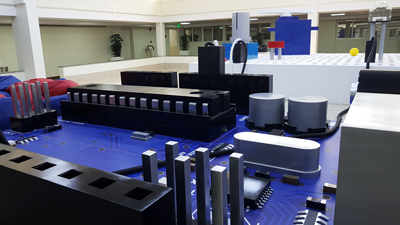
A 70x scaled up Arduino Clone board, breadboard, LED, push button, servo motor, LDR and potentiometer created with the goal of helping kids and teens to get more familiar with microcontrollers and electronics by providing a comfortable and fun playground to experiment and learn together. This project makes possible the development of different educational activities around the installation, including electronics workshops and interactive learning sessions. The 60 square meters installation has been designed and realized by Fiore and Claudia Simonelli combining several digital fabrication processes, such as cnc milling, laser cutting, vinyl cutting and 3D printing. It is located in the Super Fab Lab UAE, Dubai.
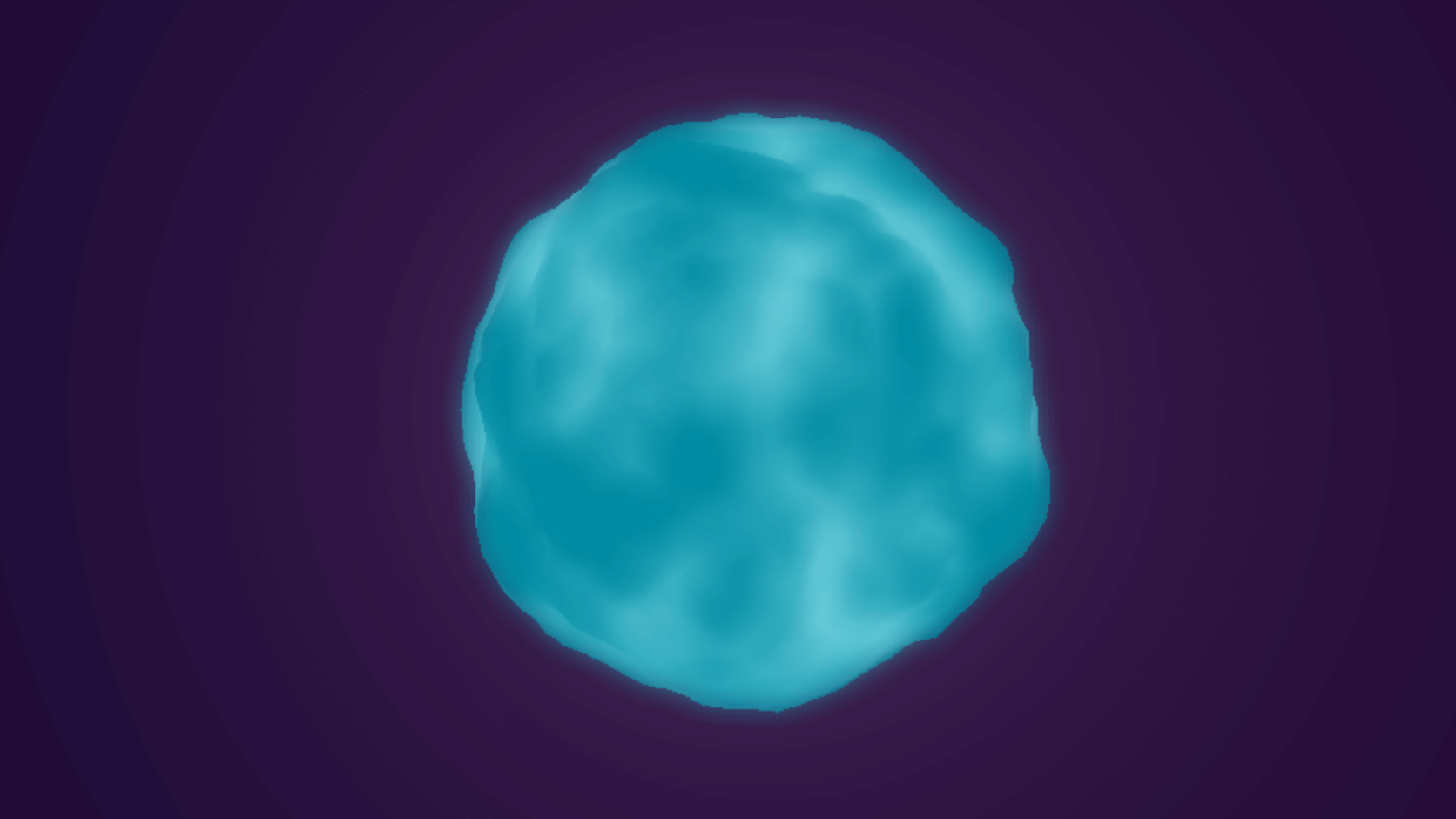
The Heartbeat demo is a study for the concept of a pulsating alien heart that is part of eMotion, an interactive installation on emotion recognition in public spaces, that Fiore and his partner made for the annual Internet festival in Pisa, Italy. A combination of 3D graphics and creative coding. The mesh is generated though Unity. Three.js is used to abstract the WebGL details, a GLSL shader animates the texture according to the web interface parameters. Tween.js powers the animation. Sound is generated using WebAudio.
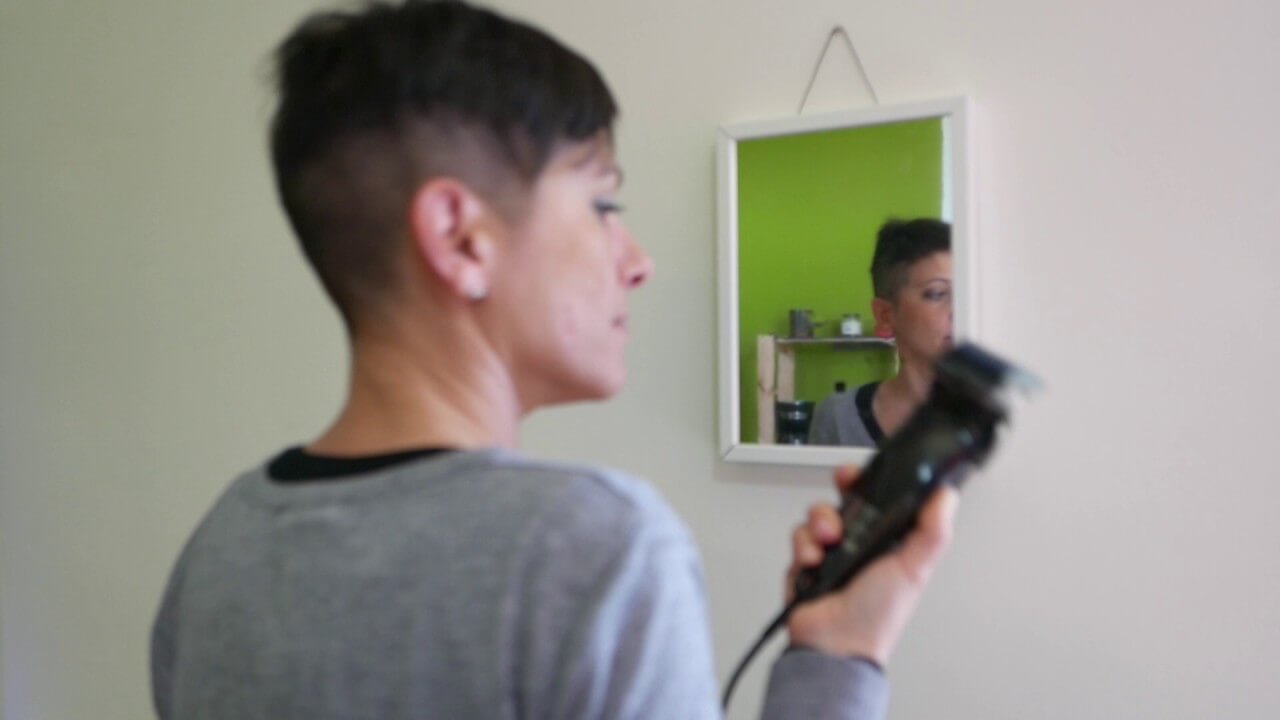
What if smiles could produce energy to make stuff work? Smiling has a positive effect on yourself and people around you. Smile Power is a way of "motivating" people to smile more. It’s an interactive open source installation composed of a smart-mirror, able to detect your smile in order to control house appliances such as lights, hair-dryers, electric razors and much more. Smile Power works by capturing images from behind the mirror and analyzing them using a classifier that recognises a picture containing a smile. The smile recognition is performed on the Raspberry PI using a c++ program from the OpenCV sample code. This is achieved training the classifier with a dataset containing many examples. The reading is then used to control wireless devices like switches or to integrate it with internet services. The installation has been designed by Fiore Basile and Claudia Simonelli at Fab Lab Toscana and presented to Olafur Eliasson during his Why to make (Almost) Anything cycle.
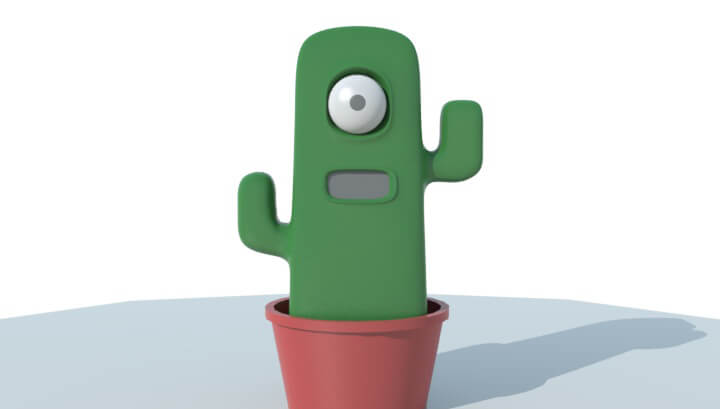
Because everybody needs an assistant that can be easily programmed to remind us of things, take care of us and make us cheer once in a while. Paco is a Digital Companion Platform powered by open hardware and software. Fiore hoped this could be the basis of the democratic diffusion of such objects, or at least of raising the awareness of the idea of interacting with computers using different means. The digital companion won’t host any intelligence on itself. It will only provide the means to acquire inputs and provide outputs. It will do so using a custom micro-controller board, also contained into the case. This decision was taken to maintain the design simpler, and more importantly reusable independently from the availability of new technologies on the interaction side. All interactivity will be driven by an external board, i.e. a linux computer or embedded board. This board will be responsible for executing the Python software, along with high level features such as speech synthesis, speech recognition, network communication, and so on. Build your own companion following Fiore's documentation!
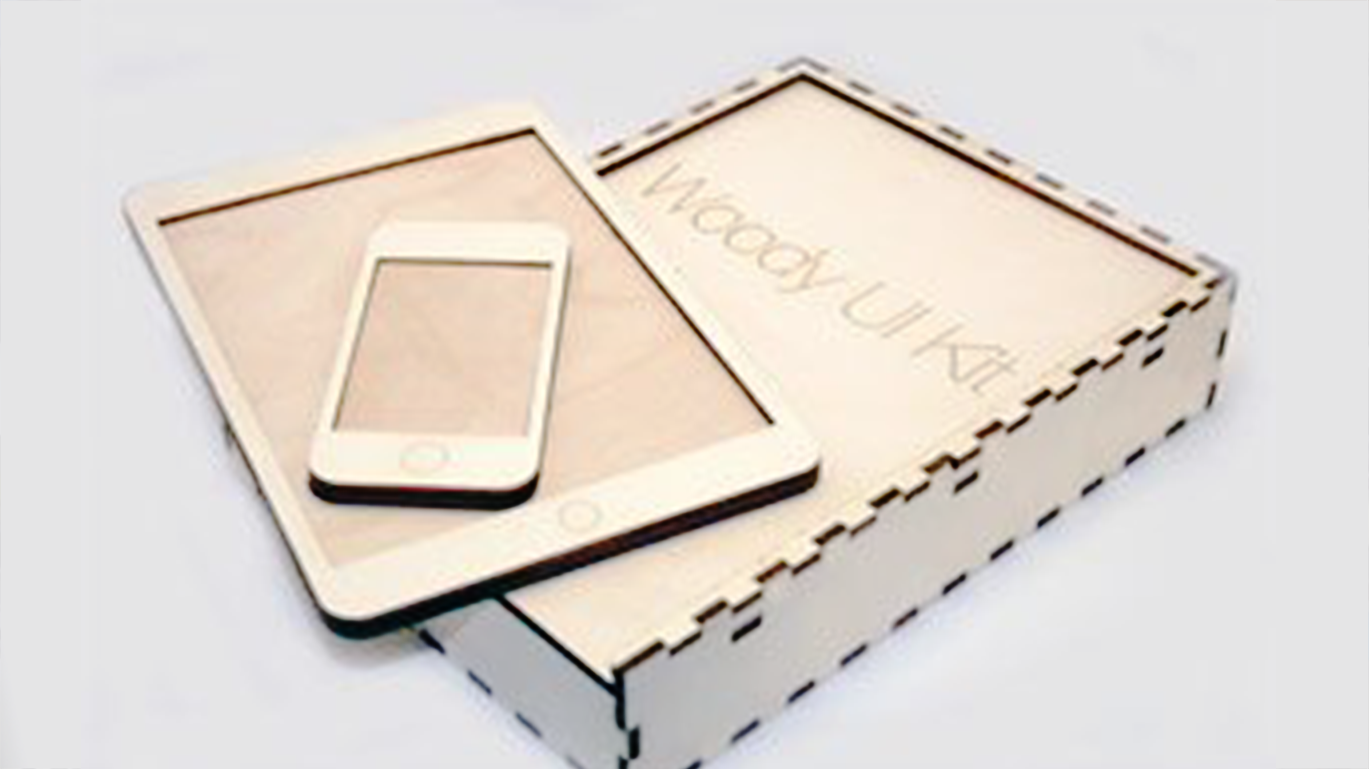
Woody UI is an innovative way to build mobile app prototypes with paper and pencil, that allows designers to design apps away from the computer, make creativity flow and bring prototypes to life without even touching the mouse. A low-fidelity prototyping kit that, through software goes from mockup to code in a few clicks of a camera. The Woody UI Kit is aimed at UI designers, web and mobile developers. It leverages the “feel” of moving around wood blocks, and brings back to the user’s memory when as a kid she played with wooden toys. Furthermore the designer can collect and reuse blocks, creating a personalized library of ready to use UI templates. The project has been showcased at Maker Faire Rome in 2013 and designed in collaboration with Make Tank and Diego Zeppegno.
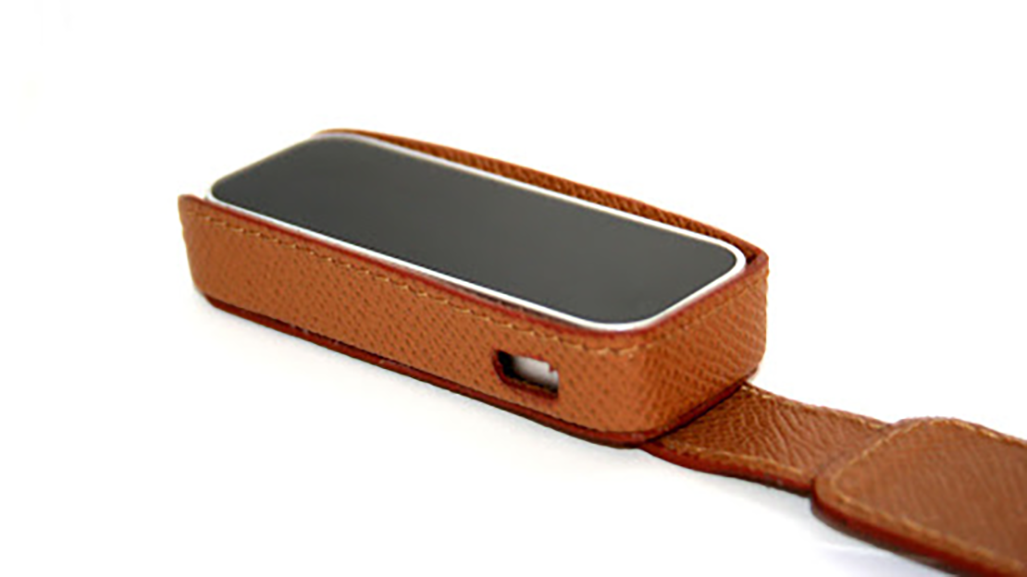
In summer 2013, a new device was released that will potentially change the way we interact with our computers. We’re willing to say that it’s not a big step, but a “leap.” The Leap Motion is a new intuitive gesture-based interface for PC and Mac. The sleek metal and glass device looks similar to an iPhone, and needs to be protected like one, too. Don’t worry, we’ve got you covered. Leap Leather Case is an artisan-crafted product, made in Tuscany, Italy, and is the first case for Leap on the market. A collaboration between Fiore Basile, Buti Pelletterie and Make Tank.
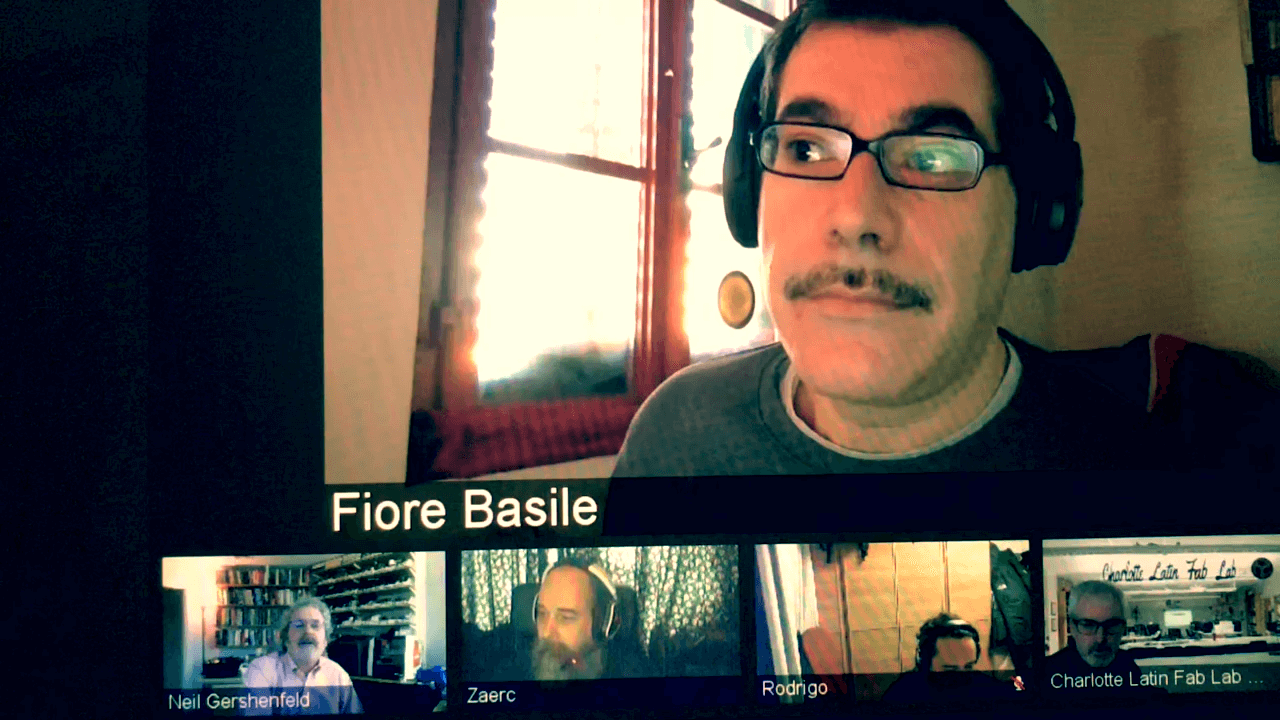
Fiore's recitation on Version Control at Fab Academy. From version control to project management and documentation. Tutorial, tips and tricks for students on how they could use the tools made available by Fab Academy in their path to the final project.
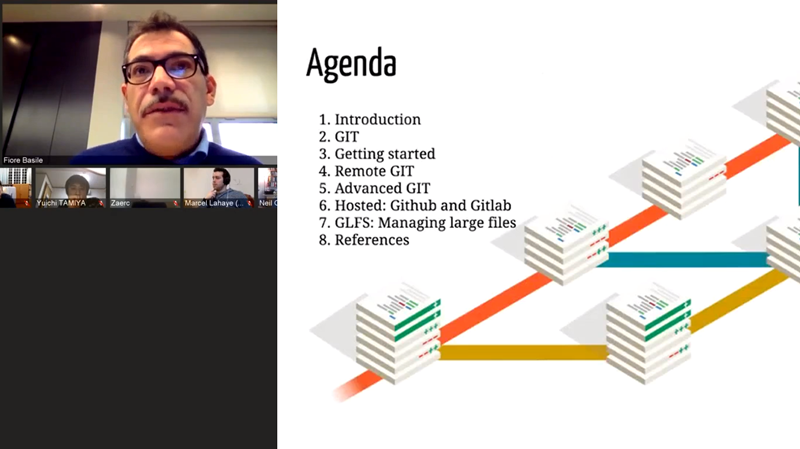
Fiore's recitation on Version Control at Fab Academy. From version control to project management and documentation. Tutorial, tips and tricks for students on how they could use the tools made available by Fab Academy in their path to the final project.
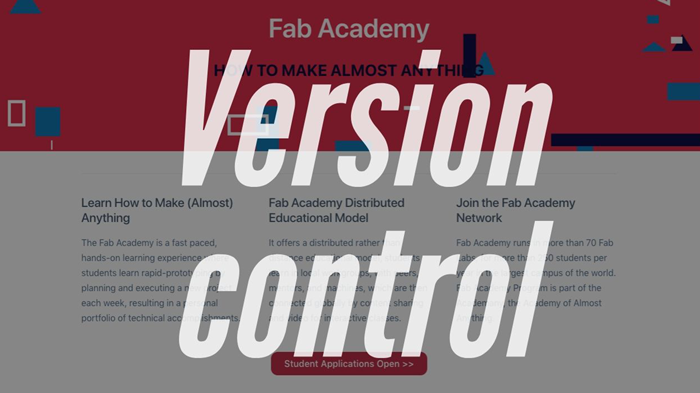
Fiore's recitation on Version Control at Fab Academy. From version control to project management and documentation. Tutorial, tips and tricks for students on how they could use the tools made available by Fab Academy in their path to the final project.
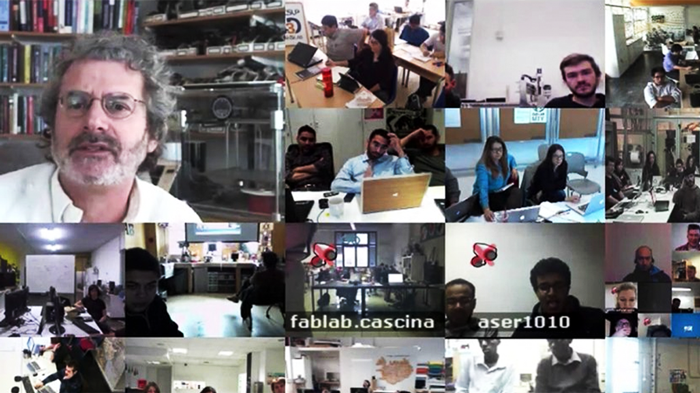
With the increasing availability and ease of use of digital tools and systems, both in the world of fabrication, biology and design, the possibility to solve problems locally is becoming greater every day. But it is often overlooked that the tools and means to build objects destined for everyday use, or to safely use synthetic biology to locally produce energy or medicine, is not at all easy or trivial. The Academany, where Fiore was serving as lead manager, is the global educational structure of the Fab Lab Network offering high level education all over the globe, at connected sites offering the same infrastructure to all students. Among them, Fab Academy, Fabricademy and Bio Academy.
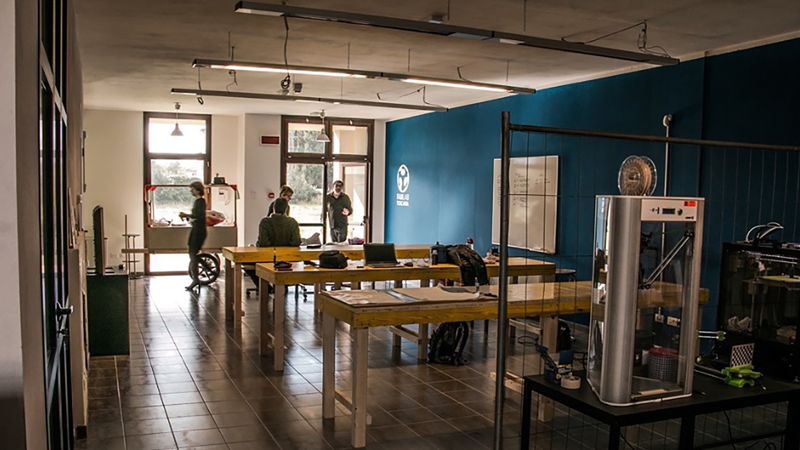
Founded by Fiore in 2013, Fab Lab Toscana is the first italian regional network of distributed Fab Labs (Fab Lab Cascina, Fab Lab Contea, Santa Chiara Lab, Fab Lab Firenze). Together they provided digital fabrication tools access and resources aiming to connect people, projects and infrastructure for a future of distributed manufacturing and education for all of Tuscany. The place where traditional crafts and digital fabrication meet and several craftsmen, artists and students had the chance to develop their projects.
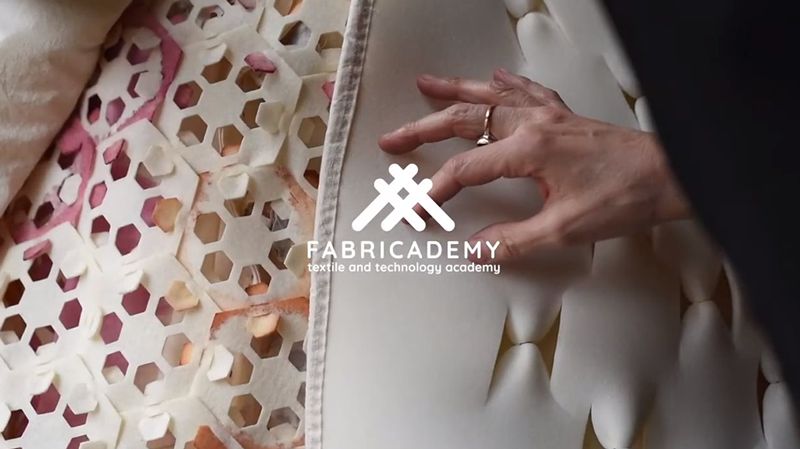
The textile and clothing industry needs to explore and start to implement more viable, sustainable and fair alternatives systems of today. Co-founded in 2017 by Fiore, Anastasia Pistofidou and Cecilia Raspanti, Fabricademy is a transdisciplinary course that focuses on the development of new technologies applied in the textile industry, in its broad range of applications, from the fashion industry all the way to the upcoming wearable market. Learn more about the Program at the intersection of Textiles, Digital Fabrication & Biology aiming to innovate the textile industry. The 4th Edition will be running worldwide and will start September 22, 2020 in many laboratories all over the world.